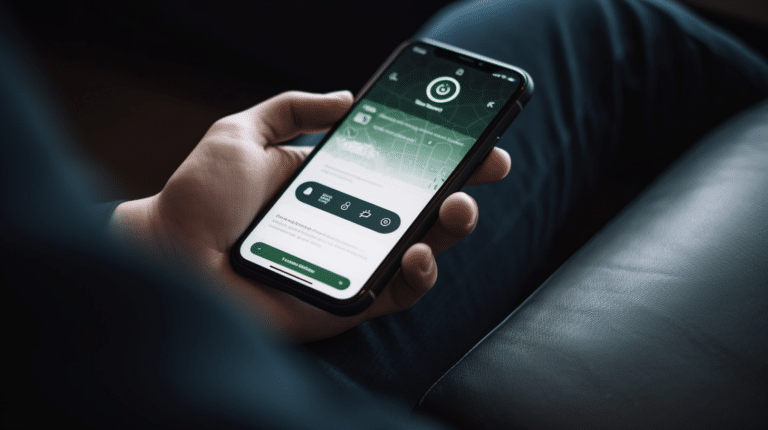The use of a VPN (Virtual Private Network) has become increasingly popular among internet users who desire privacy, security, and the ability to access content that may be geographically restricted. One of the most useful features of a VPN is its ability to change your perceived location, effectively masking your IP address and making it appear as if you’re accessing the internet from a different country or region.
This ability to change your location can offer significant benefits, such as bypassing geo-blocking restrictions imposed by various online platforms, avoiding internet censorship, and maintaining privacy while accessing location-specific content. Additionally, using a VPN can provide added online security, especially when utilising public Wi-Fi networks or engaging in online activities that demand a higher level of data protection.
Key Takeaways
- VPNs can effectively change your perceived online location by masking your IP address.
- Changing your location with a VPN offers various benefits, including bypassing geo-restrictions and improving online privacy.
- It is essential to select the right VPN for reliable and efficient location-changing capabilities.
How VPNs Change Your Location
Virtual Private Networks (VPNs) are widely used for enhancing privacy and security on the internet. One of the key features of VPNs is their ability to change a user’s perceived location. This is achieved through two main mechanisms: IP Address Masking and Virtual Location Assignment.
IP Address Masking
A VPN works by creating a secure tunnel between your device and a VPN server. When you connect to a VPN, your internet traffic is routed through this secure tunnel, which masks your real IP address. Instead, you’re assigned an IP address from the VPN server, making it appear as though your traffic is coming from a different location.
This process of IP address masking helps to protect your privacy, as websites and online services will no longer be able to trace your real location through your IP address. It also enables you to bypass geo-restrictions, allowing you to access content that may not be available in your actual location.
Virtual Location Assignment
In addition to masking your IP address, VPNs also have the capability to assign you a virtual location. When you connect to a VPN server, you can choose to connect to one that is located in a different country or region. This way, your virtual location will be determined by the geographical location of the VPN server you are connected to.
By virtually changing your location, you can access content that is only available in certain regions, such as streaming services, news outlets, and social media platforms. Furthermore, this can also help you avoid price discrimination or geographical restrictions imposed by various online services.
By using a VPN to change your virtual location through IP address masking and virtual location assignment, you can enhance your privacy, access geo-restricted content, and maintain a professional online presence.
Benefits of Changing Location with VPN
Accessing Geo-Restricted Content
A common reason for using a VPN is to access geo-restricted content. This includes streaming platforms like Netflix, BBC iPlayer, and Hulu. By connecting to a VPN server in another country, you can bypass geo-restrictions and access content that would otherwise be unavailable. This comes in handy for travellers who want to keep up with their favourite shows or to discover content that is only available in certain regions.
Online Privacy and Anonymity
VPNs play a crucial role in safeguarding online privacy and anonymity. When using a VPN, your internet traffic is encrypted, making it difficult for third parties to monitor your online activities. This is particularly important when connecting to public Wi-Fi networks, where your data can be easily intercepted by malicious actors. By changing your location using a VPN, you can also mask your true IP address, enhancing your privacy and making it harder for websites to track your browsing patterns.
Online Security
Protecting your online security is another key benefit of using a VPN to change your location. With strong encryption protocols, a VPN ensures that your data remains secure even when transmitting through potentially insecure networks. This means that cybercriminals cannot intercept your personal information or sensitive data. By connecting to a VPN server, you can maintain a secure connection, safeguarding against threats like hackers or surveillance agencies.
Bypassing Censorship
In some countries, government-imposed censorship limits access to specific websites and online services, such as social media platforms. With a VPN, you can change your location to bypass these restrictions and freely access censored content. By connecting to a VPN server in another country, you can unblock websites and services that would be otherwise inaccessible, allowing you to stay informed and maintain your online freedom.
Location-Specific VPN Features
A VPN (Virtual Private Network) can change your location by allowing you to connect to the internet through servers located in different countries. This process is commonly known as geo-spoofing. VPNs with location-specific features enable users to access geo-restricted content and bypass censorship while also enhancing privacy and security.
To ensure fast speeds when using a VPN, it’s essential to choose a service provider with a vast and diverse network of servers. This allows users to find a server that’s geographically close to their actual location, minimising latency and maintaining optimal performance. Fast speeds are particularly crucial for streaming high-quality video content without buffering or stuttering. Some VPN services even offer dedicated servers optimized for streaming purposes.
Most VPNs provide extensions for popular browsers like Chrome and Firefox, making it easy to enable and disable the VPN directly within the browser. These browser extensions are lightweight and user-friendly, ideal for users seeking quick access to location-specific features without the need to install and manage a separate VPN application.
A critical security feature to look for in a VPN is a kill switch. This mechanism automatically cuts off your internet connection if the VPN connection drops unexpectedly. Doing so prevents your true IP address and location from being exposed during temporary lapses in the VPN connection. It’s essential to ensure your VPN provider offers a reliable kill switch feature, especially when accessing location-specific services that are blocked or restricted in your region.
Another aspect to consider is protection against DNS leaks. When using a VPN, your DNS queries should be routed through the encrypted VPN tunnel, masking your true location. However, due to software issues or misconfigurations, these queries could still be sent through your ISP’s DNS servers, leaking your real location and undermining the primary purpose of using the VPN. Make sure your VPN provider has robust DNS leak protection to prevent such scenarios.
In conclusion, when choosing a VPN with location-specific features, it’s essential to consider factors such as geo-spoofing capabilities, fast speeds, compatibility with popular browsers, kill switch functionality, and DNS leak protection. By finding a VPN that meets these criteria, you’ll be able to access location-specific content and services securely and efficiently.
Selecting the Right VPN for Location Changing
Coverage and Server Locations
When choosing a VPN for changing your location, it’s crucial to consider the coverage and server locations offered by the service. Look for VPNs with a wide range of countries and server points, as this will provide more options for adjusting your location. Companies like NordVPN, ExpressVPN, CyberGhost, and Surfshark offer a significant number of server locations across various countries.
Compatibility and Devices
Another important aspect is compatibility with various devices and operating systems, such as iOS, Android, Mac, or Windows. Ensure the VPN service supports multiple devices, including mobile, desktop, and routers, to secure your online activities on all platforms. Many popular VPNs, such as NordVPN, ExpressVPN, CyberGhost, and Surfshark, offer dedicated applications along with manual configuration options for different operating systems and devices.
Privacy and Security Features
Investing in a VPN for location changing necessitates a focus on privacy and security features. Your chosen VPN should adhere to a strict no-logs policy, utilise robust encryption methods, and offer DNS leak protection to safeguard your online privacy. Some services, like NordVPN and ExpressVPN, even include kill-switch functionality, which instantly disconnects you from the internet if the VPN connection drops, further enhancing your privacy.
Customer Support and Reviews
Lastly, evaluating customer support and existing user reviews is vital in making an informed decision when selecting a VPN for changing your physical location. Look for services with responsive support available 24/7 through live chat, email, or phone. Accessing online reviews from existing users who have tested these VPNs will provide additional insights into the pros and cons of each service, helping you make the best choice for your needs.
Paid vs Free VPNs
Advantages of Paid VPNs
Paid VPN services offer several benefits that make them a preferred choice for users looking for a secure and private internet connection. Some of the advantages of paid VPNs are:
- Reliability: Paid VPNs usually provide a more stable and consistent service compared to their free counterparts. They have a vast network of servers in various geographic locations, ensuring that your connection stays fast and smooth.
- Security: When it comes to protecting your data, paid VPNs invest more resources in developing cutting-edge encryption technologies, ensuring that your data is always safe from prying eyes.
- No Bandwidth Limitations: Unlike free VPNs, paid VPNs don’t impose any data restrictions on their users. This means you can enjoy unlimited browsing, streaming, and downloading without worrying about your VPN connection getting throttled.
- Customer Support: Paid VPN services typically offer comprehensive customer support, ensuring that you get timely assistance in case you encounter any issues with the service.
Limitations of Free VPNs
While free VPNs can be a tempting option for users on a tight budget, they come with several drawbacks that make them less suitable for users seeking a reliable and secure connection. Some limitations of free VPNs include:
- Limited Server Locations: Free VPNs often have a limited number of available servers, which can result in slower connection speeds and decrease overall performance. This can also limit your ability to access content from certain geographic locations.
- Security Concerns: Free VPN providers may not invest in the same level of advanced security measures as paid VPNs, leaving your data vulnerable to hackers and other cyber threats.
- Data Caps: Most free VPNs impose strict data limitations on their users, which can considerably limit your browsing, streaming, and downloading activities. This can make them a less ideal option for users who require heavy internet usage.
- Ads and Privacy Concerns: Many free VPN services make money by selling users’ data or displaying advertisements. This can potentially compromise your online privacy and result in annoying ads interrupting your browsing experience.
In conclusion, when deciding between a paid or free VPN service, it’s essential to weigh the advantages and limitations of each option. Paid VPNs offer better security, performance, and reliability, while free VPNs may sacrifice some of these features in exchange for no upfront cost. Based on your needs and budget, you can choose the best VPN that suits your requirements and ensures a secure and private internet experience.
VPN Use Cases
VPNs, or Virtual Private Networks, are widely used to enhance privacy and security on the internet. One of the key features of a VPN is its ability to change the user’s apparent location, enabling them to access content that is restricted to specific regions. In this section, we will explore some common use cases for VPNs that involve changing the user’s location, such as accessing streaming platforms and services, regional sports events and news, and benefiting from lower prices on digital services.
Streaming Platforms and Services
A common reason for using a VPN to change location is to access geo-restricted content on streaming platforms such as Amazon Prime, Netflix, and Hulu. These platforms offer different content libraries based on the viewer’s location due to licensing agreements and regional restrictions. By using a VPN to connect to a server in another country, such as Japan, users can access content that is not available in their local library.
Accessing Regional Sports Events and News
Sports fans often use VPNs to bypass regional restrictions for accessing live sports events and breaking news that may not be available in their country. Some sports leagues and news channels limit their online streaming to specific regions or require subscriptions that can only be obtained by residents of certain countries. By changing their location using a VPN, users can access these streams and stay updated with their favourite sports events and breaking news.
Lower Prices on Digital Services
In some cases, digital services can be priced differently based on the user’s location. This can include software, games, or subscription-based services. Users may utilize a VPN to change their location and take advantage of lower prices available in other regions. Not only can this save money, but it also enables users to access products and services that may not be available in their home country due to regional restrictions.
By offering increased privacy, security, and the ability to change the user’s location, VPNs provide a range of benefits that enable users to access content and services from around the world. From streaming platforms and regional sports events to lower prices on digital services, the use cases for VPNs continue to expand.
Location Changing Alternatives
When it comes to changing your online location, VPNs are a popular choice, but there are other methods available. This section will explore two alternative ways to change your location: proxy servers and the TOR network.
Proxy Servers
Proxy servers act as intermediaries between your device and the internet. They receive your requests, process them, and send them on behalf of your device. This way, your actual IP address is hidden, and the proxy server’s IP address is visible to websites and services instead. There are different types of proxy servers, such as HTTP, HTTPS, and SOCKS proxies. Some are specifically designed for certain protocols or tasks, while others are more flexible.
Using a proxy server can be an effective way to change your online location without relying on a VPN. There are countless websites and tools available to help you find and connect to free or paid proxy servers. However, it’s essential to choose a trustworthy proxy provider, as using a malicious proxy server can expose your data to various security risks. Keep in mind that proxies may not provide the same level of encryption and security as VPNs, so consider what level of protection you require when selecting a location-changer.
TOR Network
The TOR (The Onion Router) network is another location-changing alternative to VPNs. It is a decentralised, volunteer-based network designed to increase online privacy and security. The name “Onion Routing” comes from the layered encryption methodology, where data is encrypted multiple times before being sent through the network.
When using the TOR network, your data is routed through a series of volunteer-run relay servers, each one peeling back a layer of encryption. At each relay, your IP address is changed, making it extremely difficult to trace your online activities. Due to its decentralized nature and multiple location changes through the relay network, the TOR network can effectively hide your original IP address, offering an alternative method to change your location.
However, the TOR network has some limitations compared to VPNs. Firstly, the network may be slower due to the additional routing and encryption layers. Secondly, the TOR network is often associated with illegal or malicious activities, which may attract unwanted attention or risk accidentally accessing dangerous content. Nevertheless, if your primary goal is online anonymity and changing your location, the TOR network is a viable option.
In summary, both proxy servers and the TOR network are valid alternatives to VPNs for changing your online location. While they each have their own benefits and drawbacks, a thorough understanding of each method’s capabilities and limitations can help you make an informed decision on which one best suits your needs.
Frequently Asked Questions
Which VPN services are effective in changing my location?
There are numerous VPN services available that can effectively change your location. Some popular and reliable VPN providers include NordVPN, ExpressVPN, and CyberGhost. These providers offer an extensive network of servers across the world, allowing you to change your location by connecting to their servers.
Can a VPN alter my IP address?
Yes, a VPN can alter your IP address. When you connect to a VPN server, your internet traffic is routed through the server, which assigns you a temporary IP address associated with the server’s location. This new IP address acts as a mask, hiding your original IP address and making it appear as if you’re browsing from the server’s location.
What is the process of changing my location with a VPN?
Changing your location with a VPN involves the following steps:
- Sign up for a VPN service.
- Download and install the VPN software on your device.
- Open the VPN client and log in with your credentials.
- Choose a server location from the list provided by the VPN service.
- Connect to the selected server.
Once connected, your location and IP address will reflect the server’s location, effectively changing your online geographical presence.
Are free VPN services reliable for changing locations?
Although some free VPN services can change your location, they often come with limitations, such as fewer server options, slower speeds, and data restrictions. Additionally, free VPNs may not provide the same level of security and privacy as paid services. It is crucial to research and choose a reliable and secure VPN service, even if it means paying a subscription fee.
How frequently can I switch my location using a VPN?
With most VPN services, you can switch your location as often as you’d like. There are usually no restrictions on server changes, allowing you to connect to different servers in various countries at any time. However, it’s essential to keep in mind that the frequency of server changes may vary depending on the VPN provider’s terms and conditions.
Conclusion
Using a VPN, your internet traffic is encrypted and routed through a remote server, making it appear as if you are accessing the internet from the location of that server. This process allows you to maintain a higher level of privacy and can help in protecting your smart home devices.
In summary, a VPN can certainly change your location, offering numerous benefits such as accessing geo-restricted content, ensuring privacy, and enhancing security. However, always be cautious with exaggerated or false claims by some VPN services. Ultimately, selecting the right VPN service plays a crucial role in its effectiveness in changing your location and meeting your security and privacy requirements.





